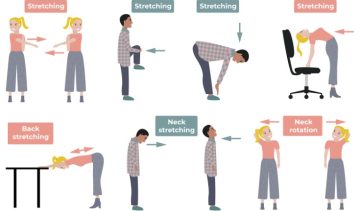Exercise is healthy, we all know that. By exercising regularly you become fitter and you have less chance of diseases, such as cardiovascular diseases. Research shows that movement has a beneficial effect on your brain. But how does exercise affect your brain? In this blog we explain it to you.
Exercise and the effect on your brain
Exercising affects your brain. According to researchers, three processes play a role in this:
- By exercising growth factors are released in the brain. Growth factors are necessary to make new nerve cells, to make new connections between nerve cells and to make new blood vessels in the brain. Growth factors are therefore important for the development, growth and activation of brain cells.
- Movement ensures a better functioning of neurotransmitters in the brain. Neurotransmitters are signal substances that ensure communication between nerve cells. Examples are: serotonin, endorphin, noradrenaline and dopamine.
- Movement can also increase the amount of signal substances. This ensures even better communication between nerve cells.
Exercise and depression
What is the advantage of more signal substances? Signal substances are important for a good mood. Research shows that people with depression often have less signal substances in their brain. So if you feel depressed, it is advisable to be active.
Exercising has many advantages
Being active also has other effects. By being active you often have a distraction from negative thoughts and moving can improve your self-image. Exercising is also an excellent way to get rid of stress. It can also reduce sleep problems, because exercise affects the amount of melatonin in the brain. Melatonin is a sleep hormone that regulates our sleep-wake rhythm.
Nice and easy to move: 10 tips
So exercising is good for your mental health! And moving does not have to be difficult. Below are 10 tips that can inspire you in which ways you can move more.
- Choose a form of exercise that you like. This way you will persist more easily.
- Motivate each other. Find a buddy, because working out together is fun and motivating.
- Link exercise to your daily routines. Go shopping by bike, take the stairs instead of the elevator, take a walk during your break. This way, exercising comes more into your daily routine.
- Setting goals is also motivating. For example, set the goal of taking 10,000 steps every day. Turn on the Step Count in the NiceDay app and go!
- Domestic chores such as gardening and vacuuming also count.
- Are you in a long phone call? Plug in your earplugs, get up and walk!
- Make time to tidy up the attic, garage, basement or shed.
- Replace the book or magazine on the couch for an audio book or podcast. When using earplugs you can walk, cycle, clean, you name it!
- Place the remote control a few meters away.
- Go for a walk with your partner or your dog every evening. Do you not have a dog? Then ask the neighbors if you can walk their dog.
Which tip will you pick up first? Put the activity on the Daily Planner in the NiceDay app and immediately keep track of how you feel about the extra exercise.
Did you know that more than three-quarters of the approximately 86 billion nerve cells in the brain play a role in exercise?











